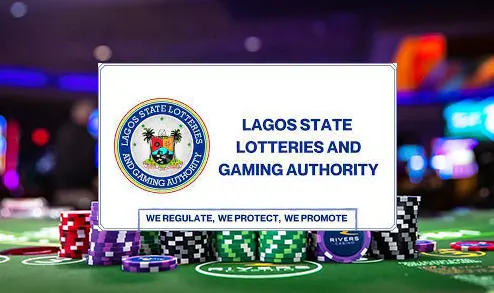 In early October, the Lagos State Lotteries and Gaming Authority (LSLGA) made a public statement, condemning 43 unlicensed gaming companies for operating within the Lagos state illegitimately and urging Lagos-based gamblers to not place bets at the online operators in question. The entity now faces criticism from industry players.
In early October, the Lagos State Lotteries and Gaming Authority (LSLGA) made a public statement, condemning 43 unlicensed gaming companies for operating within the Lagos state illegitimately and urging Lagos-based gamblers to not place bets at the online operators in question. The entity now faces criticism from industry players.
Lanre Gbajabiamila, Director General of Nigeria’s National Lottery Regulatory Commission (NLRC), issued a statement where it is noted that the LSLGA blacklist sparked confusion in the country’s gambling sector. This warranted a response by the NLRC, as requests for the Nigerian gaming watchdog to clarify the status of the listed gaming operators were made following the blacklist’s publication.
In the public notice, the NRLC clarified that around half of the blacklisted gambling companies were in possession of valid licenses issued by the country’s gaming regulator. The said online operators are Zebet, Betika, Gobet, Msport, Afribet, Bangbet, Betwazobia, Koretbet, 22Bet, Paripesa, Livescorebet, Blavkbet/Betty Bingo, Cloudbet, Hallabet, N1Bet, Konfambet, Scratch2Win, Naijabet, Lottomania, and Millionaire Powerplay. The NLRC continued, expressing regret over the confusion and misconceptions the LSLGA’s publication has potentially led to.
Industry Experts are Worried That The LSLGA’s Actions Could Harm Nigeria’s Gaming Industry
According to industry experts in Nigeria, the blacklist was an insult to the legislation that gave the NLRC the ability to regulate gambling operations within Nigeria. The ruling in question was filed in 2020 by Justice Iniekenimi Oweibo of the Lagos Federal High Court (FHC). Calls were made for Lagos Governor Babajide Sanwo-Olu to force James Maida, the LSLGA’s Chief Executive Officer, to cease such actions. The governor was also urged to address how the LSLGA has harmed the Lagos state’s reputation and how the entity’s actions were harmful to the growth of Nigeria’s gambling industry.
An anonymous gambling entity argued that, according to the National Lottery Act of 2005, licensees who have obtained their permit from the NLRC were clearly permitted to operate within any Nigerian state without needing to be licensed by the state’s own gambling watchdog. They continued, stating that the Lagos gambling regulator’s blacklist of NLRC-licensed entities was groundless. The industry player also condemned the Lagos regulator’s attempt to violate the National Lottery Act, which is still in effect, and described the move as “baffling.”
One of the main goals of the 2005 ruling was to avoid confusion surrounding Nigerian gambling legislation, stated another industry player. The ruling also aimed to ensure that the Nigerian NLRC is the only watchdog that has the power to regulate gambling on a national scale. According to this industry expert, independent state-level regulations “could be confusing for operators and players alike,” while a national regulatory entity would guarantee consistency when it comes to the country’s gambling legislation.
The industry player continued, noting how beneficial Nigeria’s gambling sector could be to the country’s economy. They then criticized the Lagos State for causing “chaos” and confusion on multiple occasions, with actions that could lead to the industry’s growth being stifled, along with its potential being restricted.